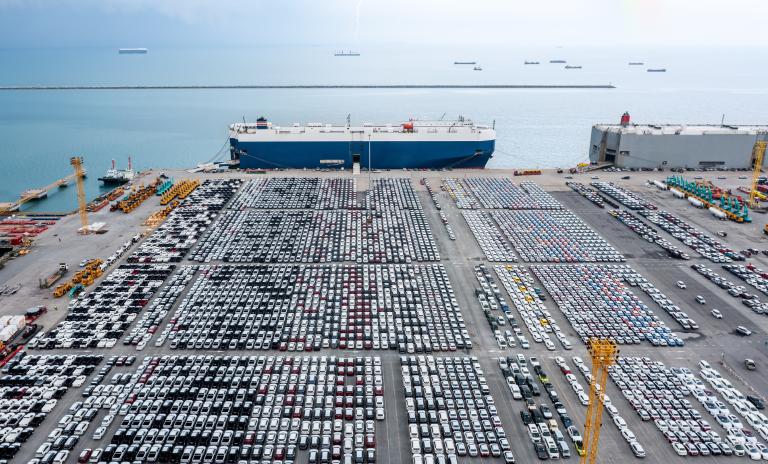The automotive world is experiencing unprecedented change. By 2040 the industry will be polarized, automated, connected and electrified – or PACE, for short.




The challenges facing automotive players in today's volatile, uncertain world are greater and more far-reaching than ever before. Over the past few years, we have seen a major increase in geopolitical tension in what was already a strained economic situation. The transformation of the automotive world will continue in the years between now and 2040, and uncertainty looks likely to increase. Automotive players are engaged in a marathon, not a sprint – and must pace themselves for the geopolitical, demographic and macroeconomic challenges of the coming decade and a half.

One of the four PACE megatrends highlighted in the Roland Berger Automotive Outlook 2040 is polarization. Rather than the globalization seen in previous decades, the world is set to become more polarized, driven by factors ranging from geopolitical tension and different national or regional regulations to new customer preferences and macroeconomic shifts. China, for example, is metamorphosing from the growth engine for European automakers into a largely fully electric vehicle market dominated by domestic players, while in North America the transition away from ICEs (internal combustion engines) is likely to be much slower. Polarization and deglobalization impact where the future sales markets and revenue pools are located, and players will need a regionally differentiated approach and potentially a new global market focus.
The Global South – in which we include developing and emerging markets in Asia, Africa and Latin America but exclude China – could play an important role in the future of the automotive industry. Markets in many of these countries are growing rapidly in terms of both economic power and population, including a 25 percent increase in the working-age population. Absolute revenue from new vehicle sales in the Global South is expected to increase by around EUR 480 billion in the period to 2040.
However, despite strong growth rates compared to other markets, the Global South's share of total revenue will only rise to an estimated 20 percent in 2040 compared to 14 percent today. This is largely due to lower incomes, low motorization rates, poor infrastructure and a preference for less expensive vehicles. For these reasons we believe that Europe, North America and China – despite shrinking populations, aging demographic structures and slow economic growth – will remain the core automotive markets over the next decade and a half.
Political instability and conflict have fundamental strategic implications for the automotive industry. The number of conflicts worldwide has risen from 88 in 2010 to 176 in 2023, an increase of 100 percent. The negative impact of such turmoil on automotive markets is clear: Russia's war in Ukraine has impacted raw materials, supply chains, energy systems and inflation, for example, strongly affecting European markets in particular. Similarly, the impact of the recent conflict in the Middle East on the automotive industry is seen in rising oil prices and disruptions to trade routes in the Red Sea and Suez Canal.
Free trade is also essential for the effective functioning of the automotive industry, particularly with regard to the supply of raw materials. The number of harmful trade interventions has increased substantially in recent years. Particularly damaging is the ongoing trade war between the United States and China, which has included export restrictions on semiconductors and raw earths, and tariffs on electric vehicles. We foresee two possible scenarios for how this geopolitical situation will develop: Either the rivalry will remain largely limited to the political arena, or it will intensify, and the two countries will limit mutual access between their economic systems. Recent developments would appear to indicate that the second scenario is more likely – but the outlook is currently unclear.
Register now to access our "Automotive 2040: Geopolitics and globalization" spotlight topic. Furthermore, you will automatically receive our spotlight topics and regular news.